Shaping Character Through Culture in Our African Schools
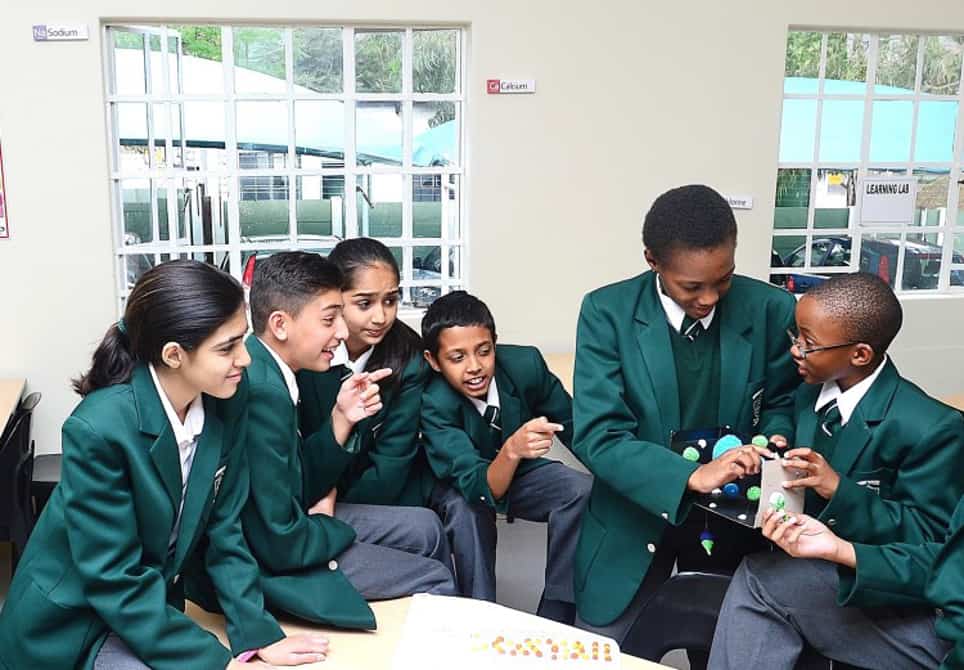
By Oliver Sabot
“High expectations are the key to everything” ~ Sam Walton
Education in Africa has been several decades behind much of the world. We launched our organization, Nova-Pioneer, with a vision of helping the continent’s schools not only catch up, but leap ahead of global standards.
We currently operate four schools spanning pre-primary through secondary in Kenya and South Africa and are growing rapidly towards our goal of building 100 exceptional schools across the continent over the next ten years.
This is the first of what we hope will be a series of posts on the approaches we are taking to transforming our students and what is considered possible in African education as well as what we are learning through our successes and frequent failures. This post explores the keystone of our entire model: culture.
Several years ago, Paul Tough published How Children Succeed: Grit, Curiosity and the Hidden Power of Character that captured a growing trend in global education – the importance of character traits in determining children’s lifelong success.
The book examines the experience of strong schools like the KIPP network in helping low-income students to achieve exceptional academic results only to find those students struggling and dropping out of university a few years later. Tough draws on a growing body of research to identify the culprit as non-cognitive abilities like perseverance or “grit” (itself the focus of Angela Duckworth’s book Grit: The Power of Passion and Perseverance).
Tough’s conclusion is simple: if we want the next generation to truly thrive and realize their full potential, educators – schools and parents alike – we must focus on building character as well as cognitive abilities.
That research has led us to make building strong character one of the core pillars of the Nova-Pioneer model in Africa. In doing so, we have struggled alongside educators around the world with the question of how to deliberately develop character. We know how to teach fractions. How do we teach grit or curiosity?
Tough’s recent book Helping Children Succeed: What Works and Why answers that question. His conclusion is that great schools don’t teach character; they create the conditions in which it can flourish. Tough writes, “There is growing evidence that even in middle and high school, children’s noncognitive capacities are primarily a reflection of the environments in which they are embedded, including, centrally, their school environment.” (You can hear Tom interview Paul Tough on the Getting Smart podcast and read an excerpt of his book focused on deeper learning and project-based learning).
At Nova-Pioneer, we devote an immense amount of time and energy to creating a school culture that will nurture strong character. Six principles anchor our efforts to build a vibrant culture. We infuse these principles into every aspect of the school experience. They are on the walls of every room. The principal leads reflection on them during morning assemblies. Even soccer and rugby practice are peppered with discussion of Greater Together and High Expectations. Importantly, our staff experience is as immersed in these principles as our students – our behavior as adults is the most important shaper of student’s environment.
Summary of Nova-Pioneer Culture Principles in Every Room
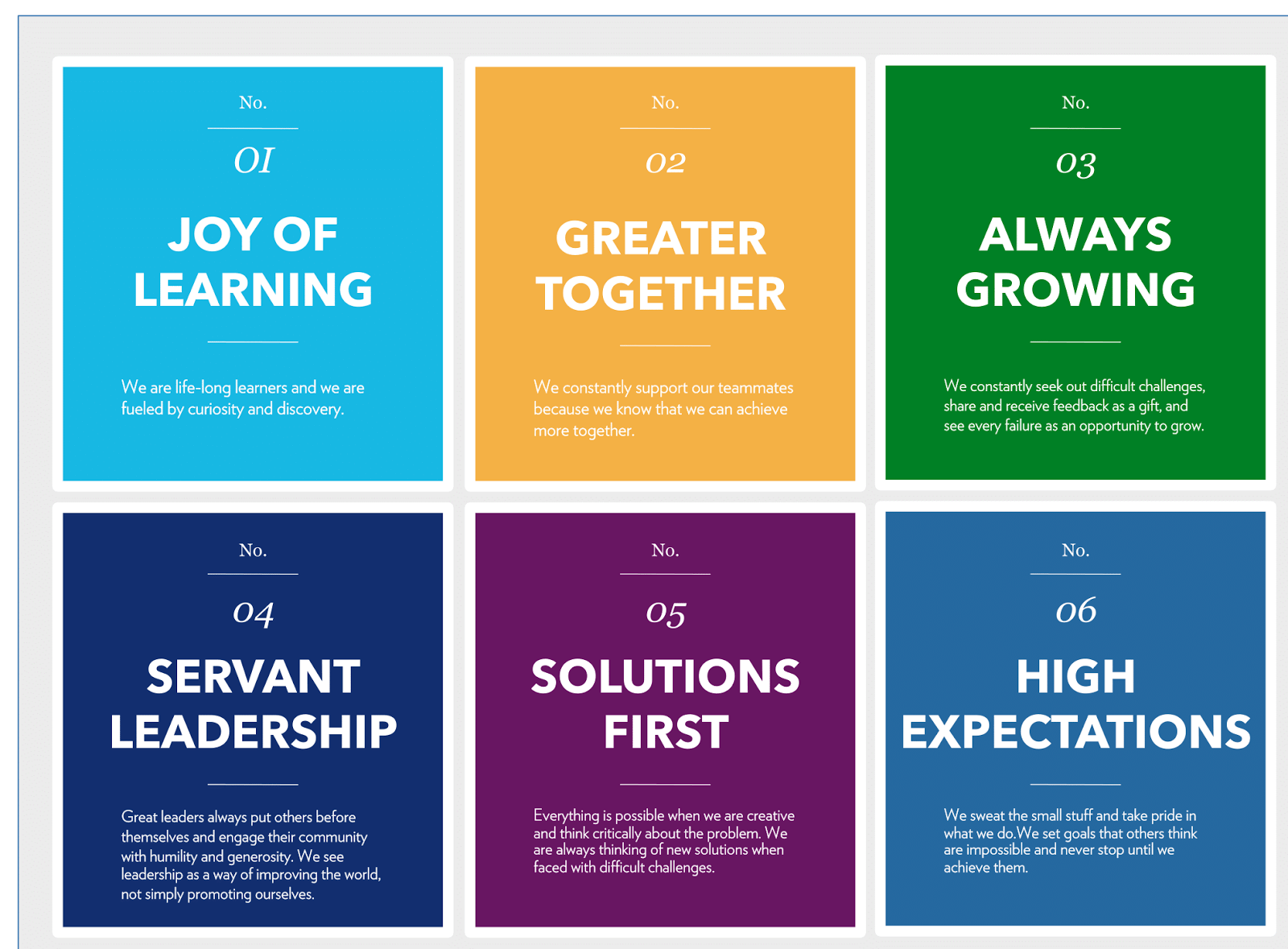
This hands-off approach to building character is the same one our teachers use daily to develop academic abilities. Our natural instinct as educators when we see a student struggling is often to instruct, to provide the answer. Instead, our teachers create a classroom environment in which students spend much of their time experimenting, discussing, debating, and – yes – frequently struggling, their way towards a deep understanding of the topic. That is why we purposely refer to our teachers as facilitators rather than instructors.
Translating culture from inspirational phrases on the wall into durable changes in mindset and behaviors is the holy grail of this work. We talk constantly about how to best make that translation, from thorough screening for culture in our hiring process to emphasizing culture in our performance evaluations for staff and report cards for students. We have built – and continue to tinker with – a series of rituals to reinforce culture within our community. Some examples linked to our principles include:
1. Always Growing – We end each week with the lunchtime ritual of “Friday Failure Fries” where every member of the community shares a failure from the week and what they learned from it – while eating fries of course.
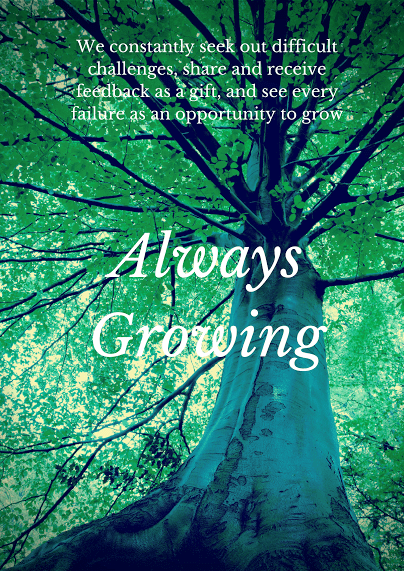
2. Solutions First – We begin each week with “Gratitude Mondays.” During homeroom for students and kick-off meetings for staff, everyone briefly shares something they are grateful for, with an emphasis on gratitude within the community.
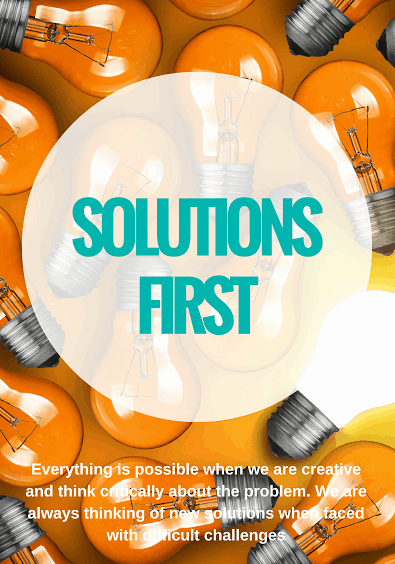
3. Greater Together – We hold “Community Reflection” at the end of every term. Everyone in the community, from cleaners to students to the CEO (and in Kenya and South Africa alike), pauses for a few hours to read and discuss together great pieces related to our aspirations and challenges as individuals and as a community.

We are just beginning our journey of building a school culture that can truly transform our students’ character. Character is shaped by thousands of actions by our staff and students every day. But we are off to a great start. We are particularly enthused by the stories of our students’ time outside of school. Many parents report that their children are dramatically more inquisitive and responsible after just a few months in the school.
And perhaps most excitingly, some students are leading their families in discussions of our six culture principles at the dinner table. If students continue to deeply embrace and reflect on our culture both within and beyond the walls of our schools, we are optimistic they will develop the character they need to build lives of purpose and impact.
This blog is part of our occasional Smart Planet series, where we explore innovations in learning across the globe. Do you have an idea or an organization that we should know about? Use the hashtag #SmartPlanet or consider submitting a guest blog by following our guest blogging procedures and emailing [email protected] with the title “Smart Planet.”
For more, see:
- How Stanford Took a Cue from Our School in Africa and Everybody Won
- 5 Organizations Scaling Innovations in Learning Across Africa
- Three Paradoxes Confronting the Global Educator
Oliver Sabot is working to build and rapidly scale the future of African – and global – education. Follow him on Twitter @OliverSabot.
Stay in-the-know with all things EdTech and innovations in learning by signing up to receive the weekly Smart Update.






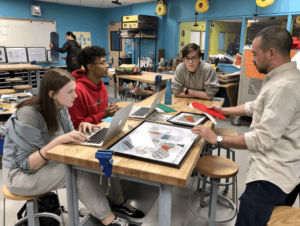
0 Comments
Leave a Comment
Your email address will not be published. All fields are required.